Belarus at breaking point: How Putin’s war threatens Lukashenko’s fragile grip on power
Russia’s use of Belarus as a launchpad for its war in Ukraine risks unravelling Alexander Lukashenko’s regime as he faces growing opposition at home and condemnation from abroad, reports Borzou Daragahi


As Belarusian rail lines break down and trains transporting Russian military equipment into Ukraine grind to a halt, the government of strongman Alexander Lukashenko is making a risky move.
It is airing confessions of transport workers involved in the so-called “rail war”, who are admitting to damaging equipment and infrastructure and causing delays.
On the one hand, the accounts may strike fear into the hearts of those Belarusians who are opposed to the war, to Mr Lukashenko’s tyrannical regime, and to his close relationship with Russian president Vladimir Putin.
But on the other hand, the array of dozens of statements from ordinary trackmen and line workers, rail hands and IT specialists, conductors and engineers showed the depth and breadth of opposition in Belarus to Russia’s war, as well as towards Mr Lukashenko.
“I know these guys – they are drivers, security guards and maintenance crews,” Franak Viacorka, an adviser to Belarusian opposition leader Sviatlana Tsikhanouskaya, tells The Independent in an interview.
“They have their own secret chats and they organise their actions every few days. Sometimes very simple little damage leads to very big problems.”
Mr Lukashenko’s decision to let Russia use his country as a staging ground for the invasion of Ukraine was a key factor in the war, enabling Vladimir Putin to position troops just a few hours from Kyiv.
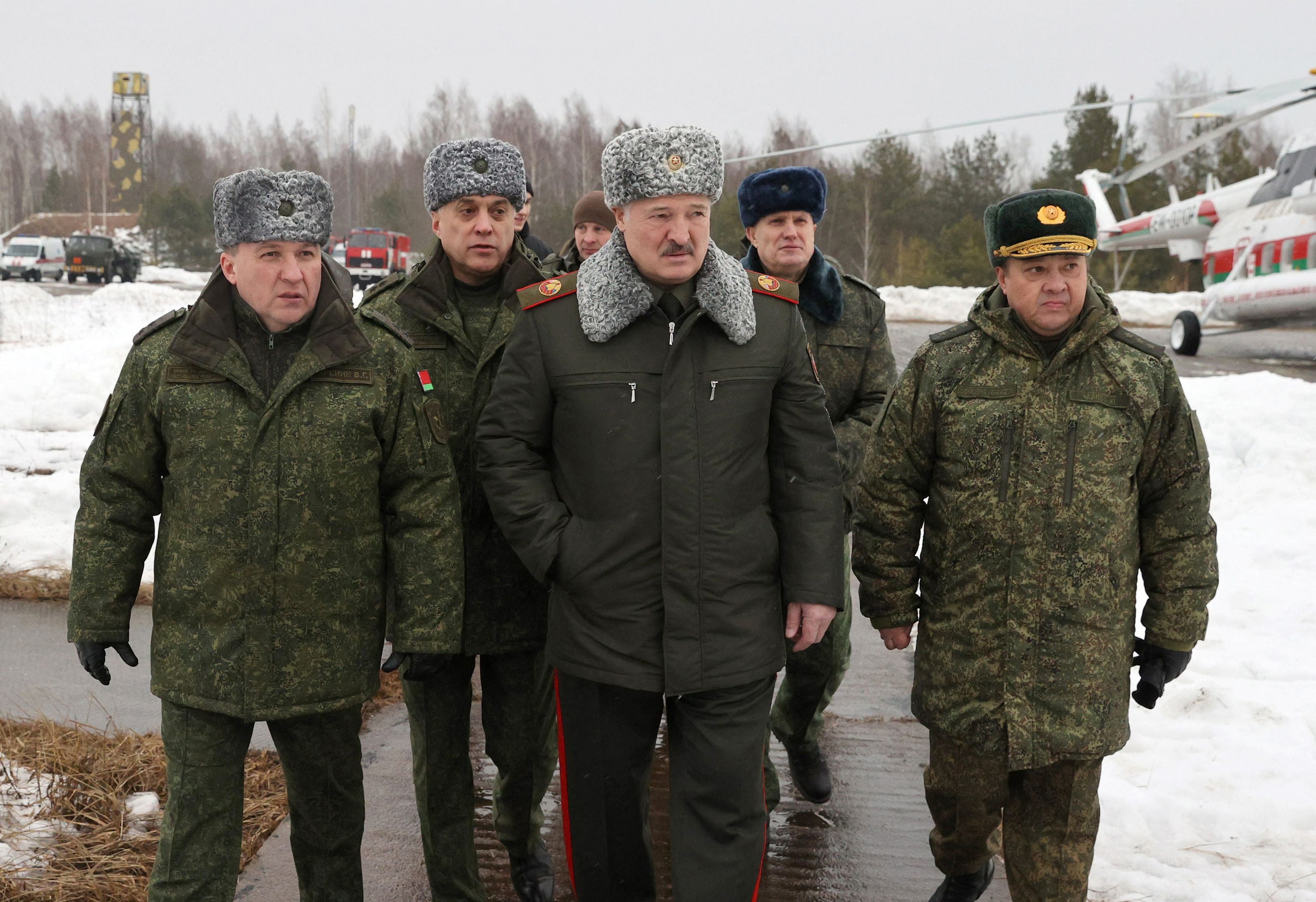
But it also places Belarus and Mr Lukashenko under the spotlight, bringing domestic and international pressure and attention to a politically fragile nation that was already at breaking point following disputed 2020 elections that triggered waves of protest and repression.
While the war may help Mr Putin consolidate his hold over Russian society and politics, for Belarus and its autocratic leader the conflict could unravel an already shaky calm imposed by force.
Polls conducted by the Chatham House think tank showed that more than 55 per cent of Belarusians oppose the war, along with Russia’s use of their country to dispatch troops and fire missiles into Ukraine, and nearly 97 per cent are against deploying any domestic forces across the border.
“The absolute majority are against the war and against deployment of troops – that includes elites, people and army,” says Hanna Liubakova, a Belarusian opposition journalist.
“The general attitude is that Belarusians should not go there and kill their neighbours. And not be murdered or killed for Putin.”
Although he has publicly endorsed Russia’s position, Belarus insiders say that even Mr Lukashenko may be uncomfortable with Mr Putin’s war, seeing it as bringing nothing but trouble to his borders.
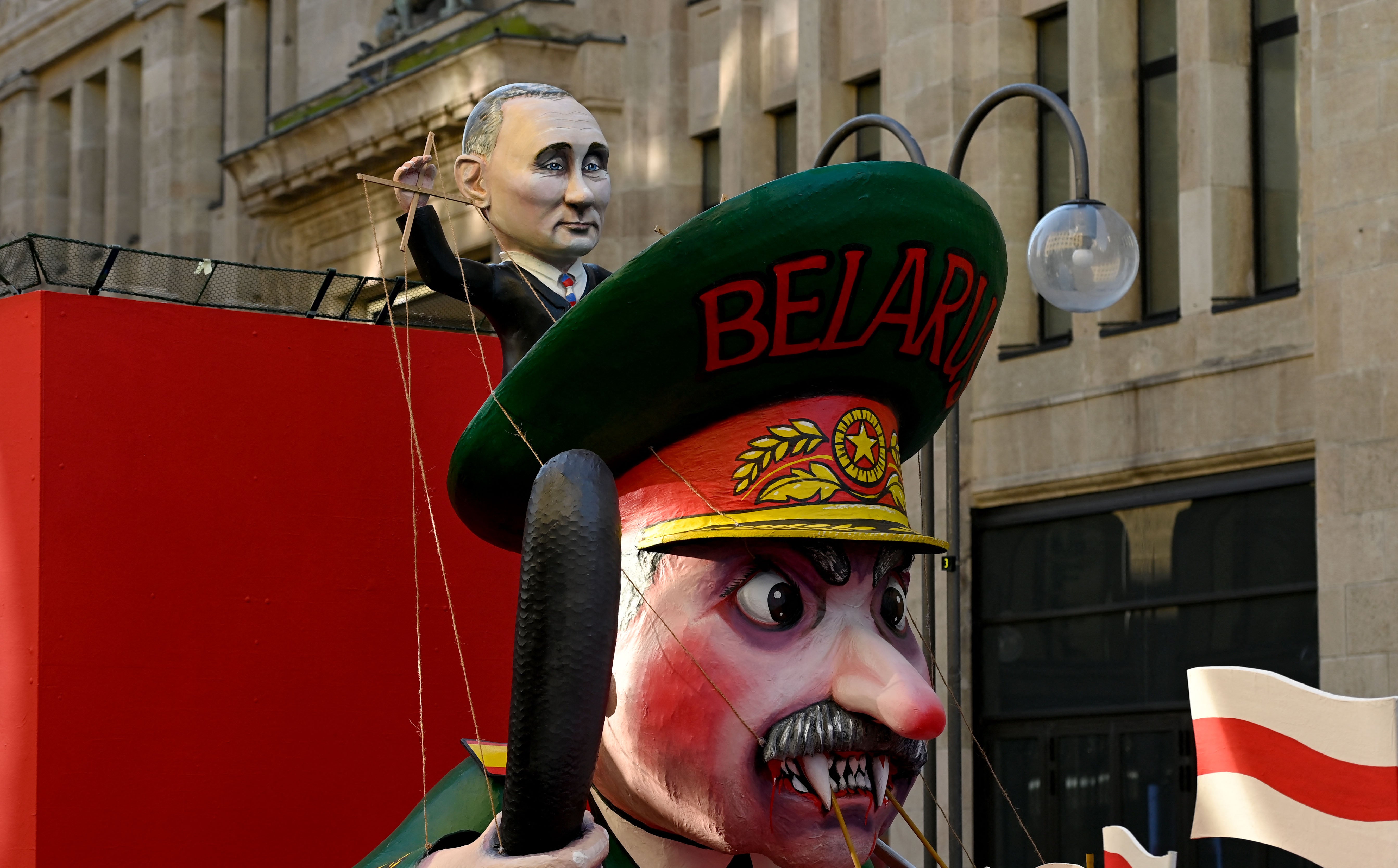
“He’s a co-aggressor, but also kind of a victim,” says Ryhor Astapenia, the leading Belarus specialist at Chatham House. “Lukashenko didn’t want this war. His ministry of defence didn’t want this war. Belarusians didn’t want this war.”
Mr Lukashenko has repeatedly said he will not send any troops to fight in Ukraine. “I’ve told you 1,020 times that we have no plans to fight in Ukraine,” he was quoted as saying on 25 March by the official state news agency. “Belarusians genetically abhor wars.”
The nation of 9.5 million is among the Slavic-language nations Mr Putin covets as part of Russia’s closest sphere of influence and control. For years Mr Lukashenko maintained a delicate balancing act, peddling his country as a geopolitically neutral and placid “Slavic Switzerland”, despite signing an association agreement with Moscow in 1999.
It’s not just some small country in Europe – now Lukashenko endangers the whole continent
In 2014, when Mr Putin and local allies took control of eastern Ukraine and declared the annexation of the Crimean peninsula, Mr Lukashenko remained aloof, issuing a series of vague and general statements, and looked the other way as young men went to Ukraine to volunteer to fight on both sides of the conflict.
Belarus might not have found itself a factor in the war at all were it not for the 2020 popular uprisings against Mr Lukashenko after allegedly fraudulent elections. Mr Lukashenko launched a severe wave of domestic repression that crushed Belarusian civil society and turned the country into a grim police state.
The ensuing international isolation forced Mr Lukashenko closer into Mr Putin’s orbit, allowing Russia to position more troops in his country in exchange for cash and political support.
Last year Mr Putin floated Belarus a $1.5bn (£1.14bn) loan, and signed a security partnership aimed at countering political opposition.
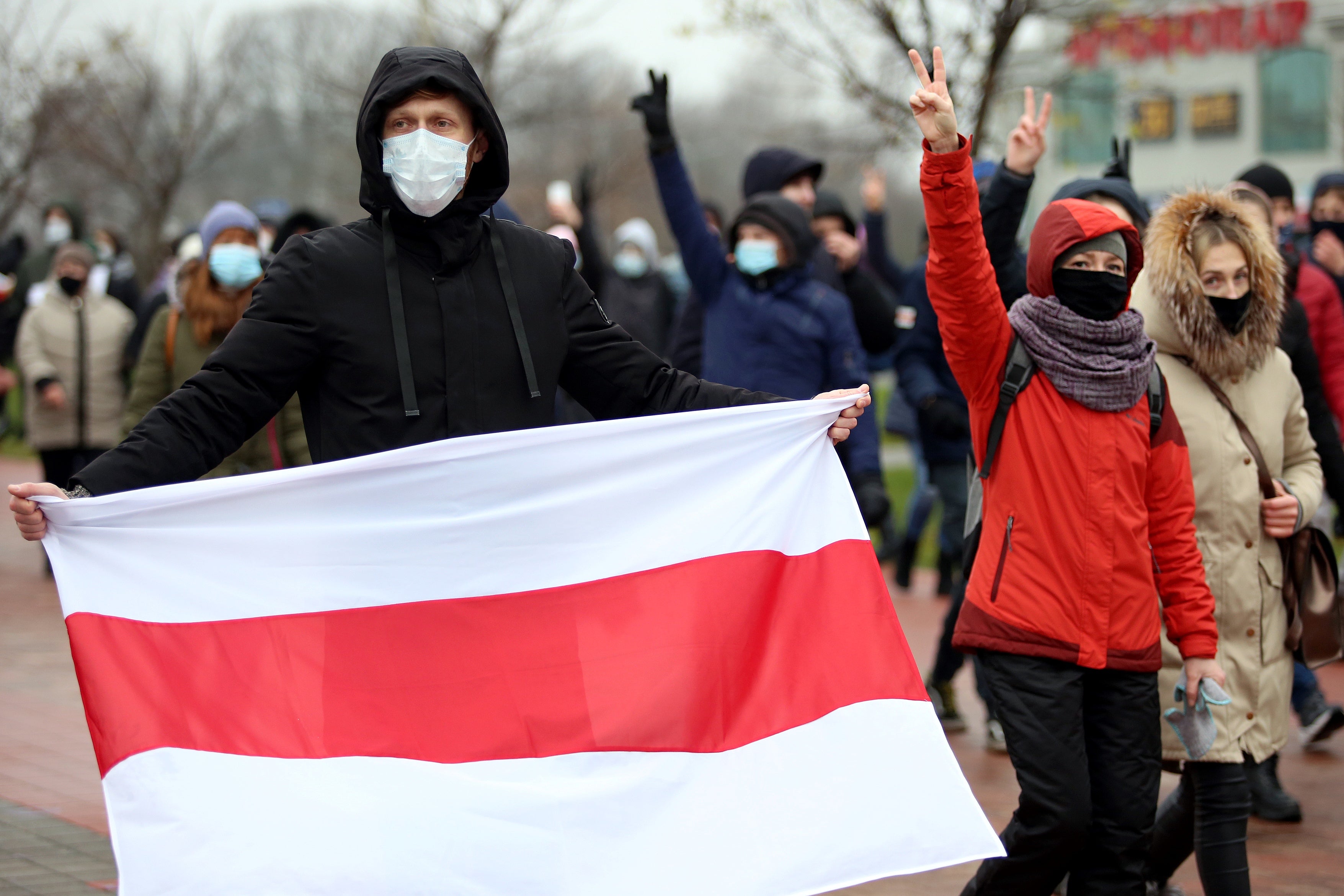
Belarus is among only four nations around the world that have voted in support of Russia on UN General Assembly resolutions regarding Ukraine – along with Syria, North Korea, and Eritrea.
As hostilities between Ukraine and Russia rose in the months preceding the 24 February invasion, Russian forces arrived in Belarus for a training exercise that later turned into a ground incursion.
From the beginning of the invasion, Russia has used Belarus to target both the capital region and the northern city of Chernihiv.
The Kremlin has deployed ground forces from Belarus, including through the vast wooded exclusion zone that surrounds the Chernobyl nuclear power plant. It has launched ballistic missiles at Ukraine from Belarusian territory, striking targets in the country’s north.
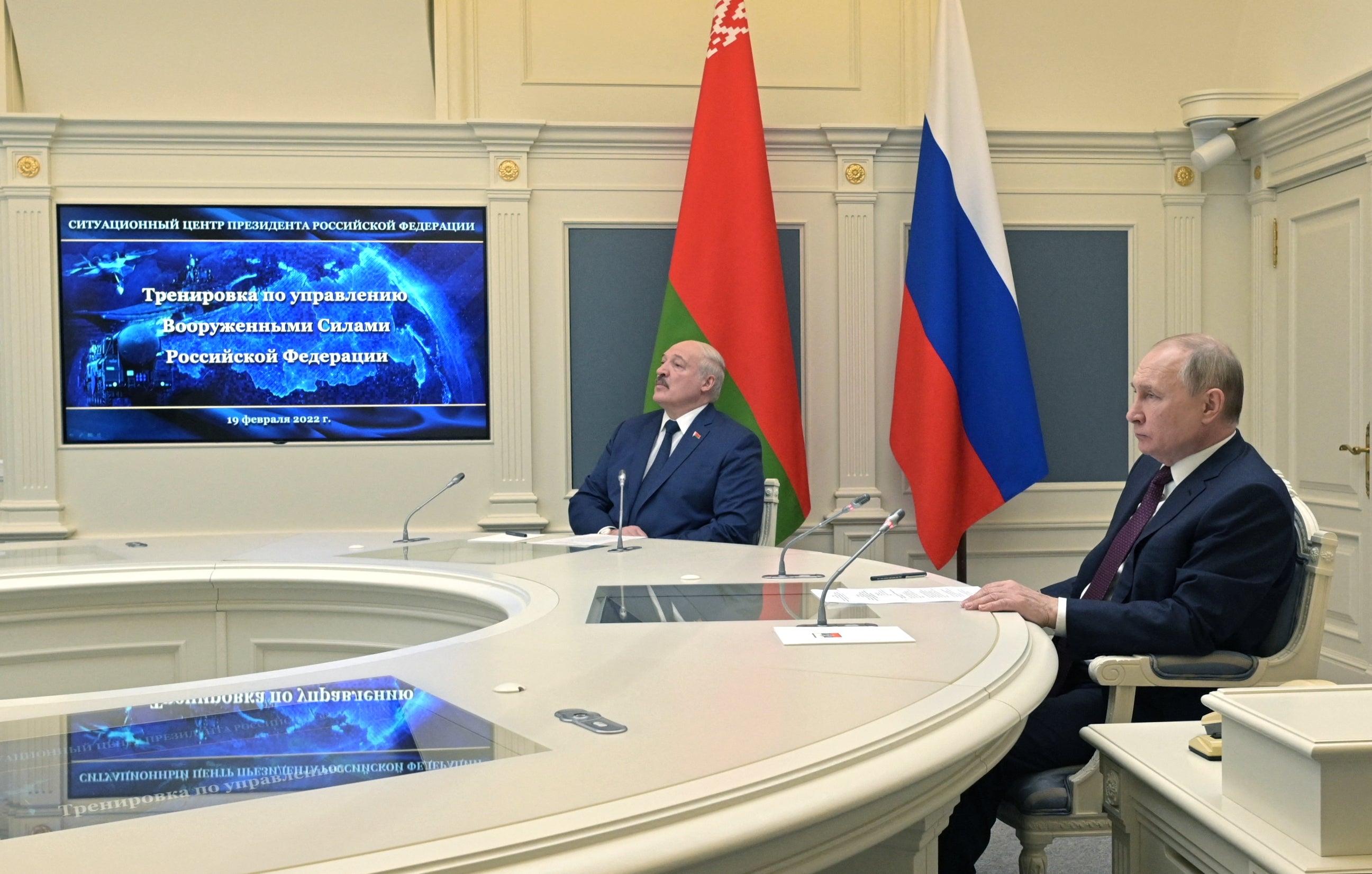
As Russian casualties mounted, Belarus turned into a triage point for the wounded as its hospitals became flooded with soldiers.
Even now, as Russia claims to be removing troops from Kyiv in what it has described as the end of a phase of its operations, it is redeploying them to Belarus, keeping them close to the capital, presumably in case Mr Putin decides on yet another recalibration.
“If Russia didn’t have access to Belarus territory and military infrastructure, then this war would look differently, and Russia would have less leverage on Ukraine,” says Mr Astapenia.
Some analysts have speculated that western diplomats or other interlocutors could use the war as a way to lure Mr Lukashenko away from Mr Putin’s embrace.
“In practice, the only rhetoric I’m hearing is ‘Punish Belarus’,” says Samuel Ramani, a Russia specialist at the Royal United Services Institute think tank. “But it would be a smart idea to try to separate Belarus from Russia.”
The more common position is that the west has not done nearly enough to punish Mr Lukashenko, who has shown that he is a danger to more than just his own country.
The government is clearly stressed by all the cases of sabotage
Analysts cite his 2021 forced landing of a Ryanair flight passing over Belarus, during which dissident Roman Protasevich was seized and put on trial, as well as his allowing migrants from the Middle East to flood the EU’s borders late last year.
“It’s not just some small country in Europe; now he endangers the whole continent,” says Ms Liubakova. “The sooner the international community gets that, the easier it would be to fight him.”
Despite economic sanctions imposed on the country after the 2020 crackdown, Belarus achieved a record foreign trade surplus of $4bn last year.
Even the Baltic countries of Estonia, Latvia and Lithuania, which are among the former Soviet republics most vociferously opposed to the war and to Mr Putin, reached near-record trade levels with Minsk. Belarus is among the world’s biggest producers of potash, a potassium-rich salt.
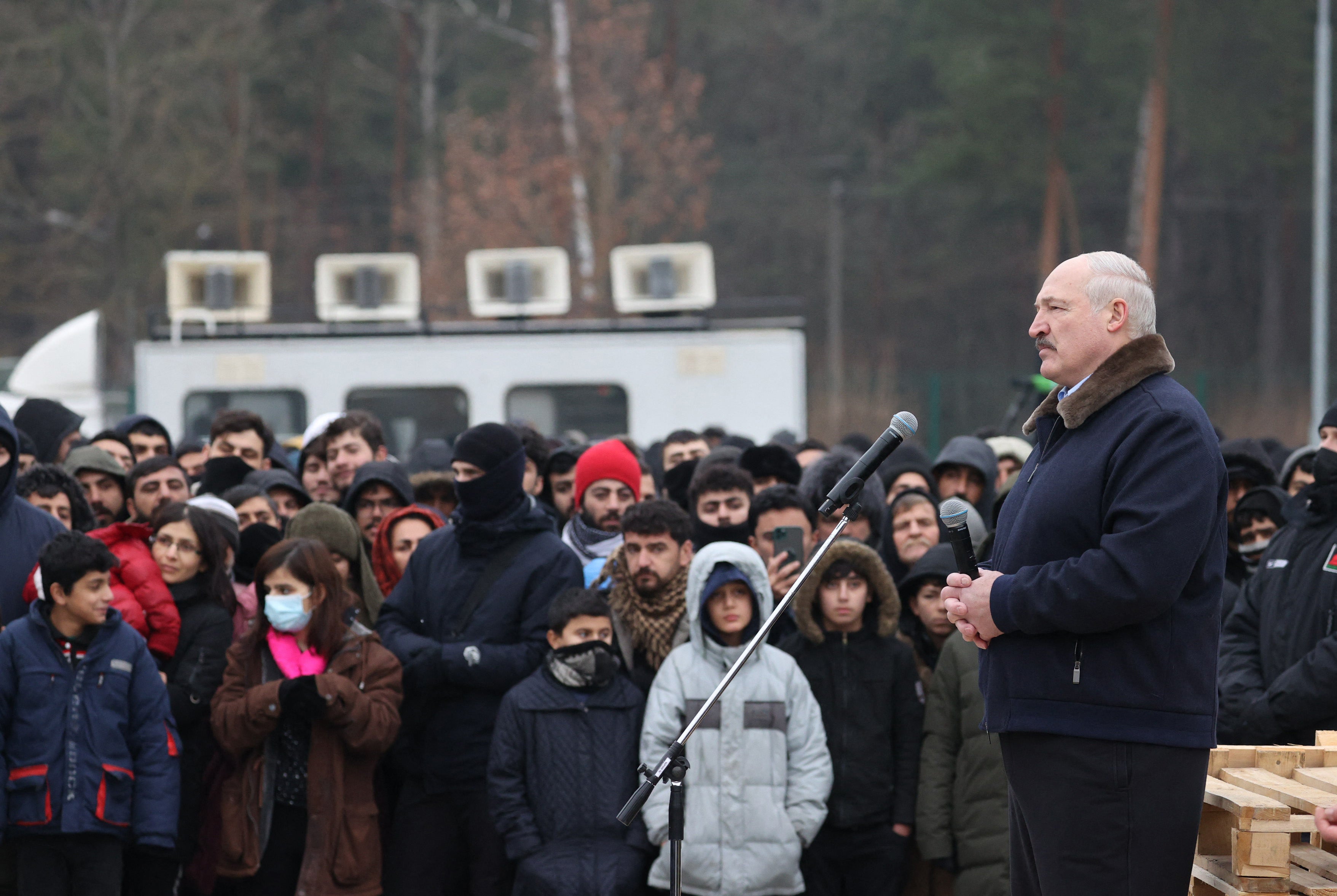
“This is about lack of persistence and lack of attention among stakeholders,” says Mr Viacorka. “After political gains, there has always been a delay which is used by economic interests to sabotage any change. This has helped the regime.”
Mr Viacorka says the Ukraine war has reinvigorated the Belarus opposition. In addition to the railway saboteurs, hundreds of citizen journalists are sending Ukrainians photos and locations of Russian military equipment.
“People are sending photos of missiles and aeroplanes flying from Belarus territory, and this helps the Ukrainians to alert their air defence systems,” he adds.
“They are all spontaneously organised, as the leadership of the opposition all left in 2020. We didn’t have such systems of informants and intelligence in 2020.”
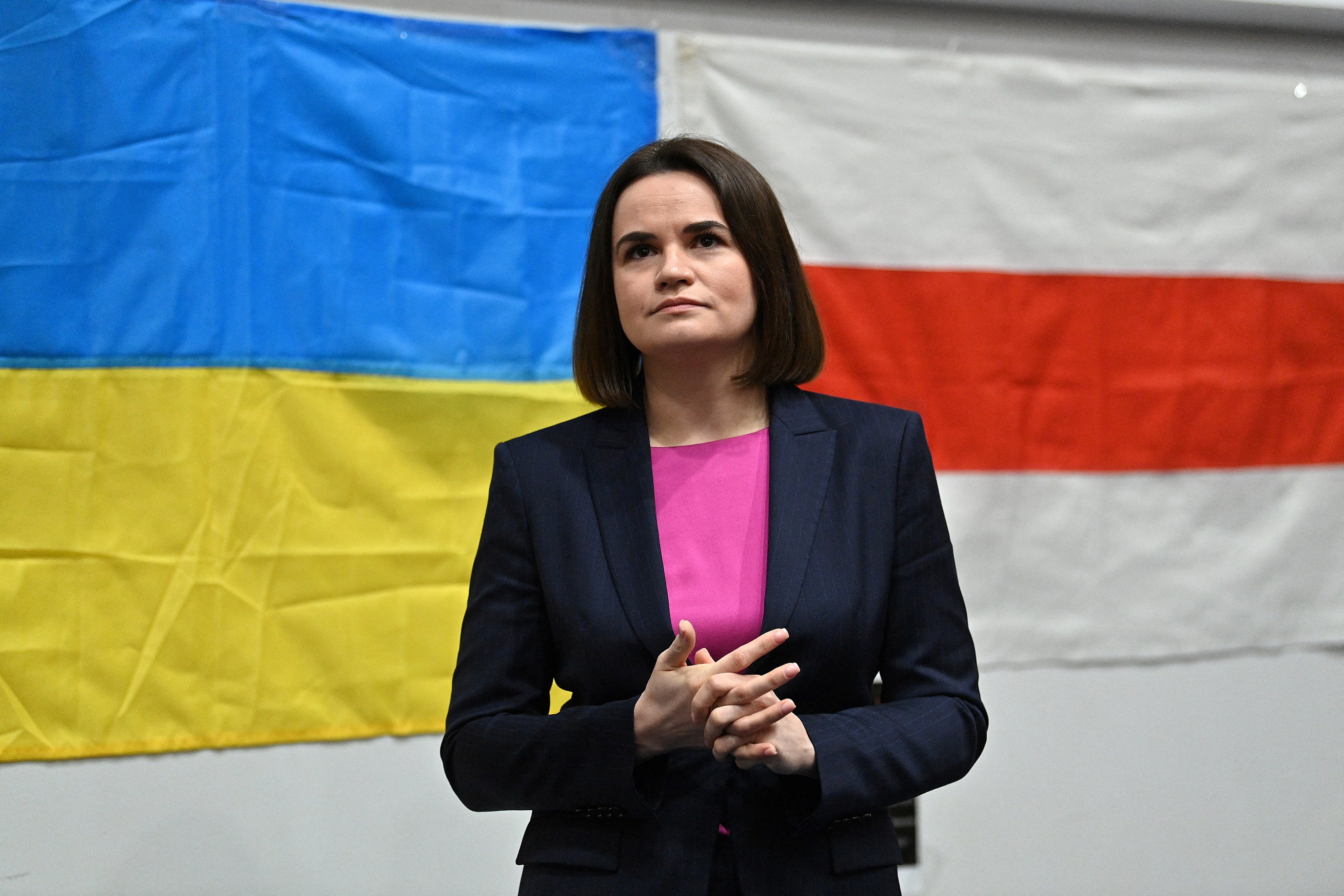
Hundreds of Belarusian men are also joining the war effort in support of Ukraine, serving as one of the most effective units opposing Russian forces.
Earlier this week, the members of the all-Belarus Kastus Kalinouski battalion, named after a 19th-century revolutionary and writer, officially became part of the armed forces of Ukraine. Thousands more are lining up to join the war effort in some capacity.
Ms Liubakova describes one friend who is now undergoing urban warfare training in Kyiv in order to join the Ukrainian effort. “He has never had any kind of military or armed forces experience,” she says. “It’s very different people and from very different backgrounds.”
Mr Lukashenko probably knows the war has emboldened the opposition, and heightened mistrust and fear between the government and the population, elevating the dangers threatening him and his rule of nearly 28 years.
“The government is clearly stressed by all the cases of sabotage,” says Mr Astapenia.
“They are wondering, ‘If this is happening now, what can happen next?’ They fear that these acts could become larger scale than they are [now]. The role of the security services is as the glue. Despite all the political controls, everything is held together by repression.”






Join our commenting forum
Join thought-provoking conversations, follow other Independent readers and see their replies
0Comments